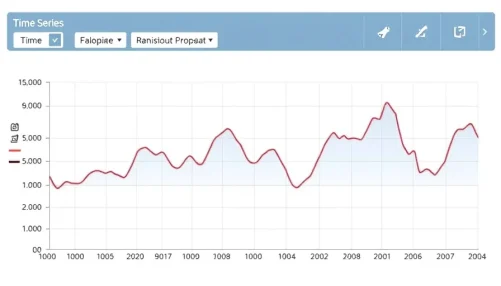Is there such thing as “Time series forecasting”? I personally don’t like this term and think that we should use a different one. Which one? Come with me in this post to find out.
I understand why people use the term “Time series forecasting” – they want to show the type of data they work with and explain what they are doing. But there is no point in forecasting outside of time series. According to one of the definitions (I previously mention it here and here), “forecast is a scientifically justified assertion about possible states of an object in the future”, while forecasting is just a process of producing forecasts. So, the time is already embedded in the definition, and there is no need to add “time series” to it.
Furthermore, you cannot do “cross-sectional forecasting”. It wouldn’t be forecasting per se, but rather scenarios generation. For example, you can say that based on the collected cross-sectional data across several shops in our chain on Monday, the increase of price of a product should cause a decline in sales on average by some amount. You can even say what sales to expect if the price and other variables were somehow defined. But you cannot say what to expect in next week based on this data, because the cross-sectional data itself does not have dynamic element. It is good for scenario planning, but useless in forecasting.
Furthermore, when you say “time series forecasting”, you imply a wide area without any specificity. But there are many areas, where you can do forecasting which differ substantially from one to another. Are you doing “demand forecasting”, “revenue forecasting”, “price forecasting”, “volatility forecasting” or something else? While some approaches can be applied to many of these areas, they still have their specificity and own set of instruments and rules. So, you should always keep the specific domain in mind, otherwise you might do something unreasonable. For example, GAMLSS works very well in energy demand forecasting, but it does not necessarily perform as well in supply chain forecasting, where you often have short history and lots of zeroes.
But most importantly, forecasting should not be done for the sake of itself (see my old post from COVID times on this). If you “forecast a time series”, then you just do an exercise without a specific aim. Forecasting should inform decisions. Yes, you can show how cool you are, but is there anything beside that?
So, when I see statements like “This and that guy will talk in our webinar about time series forecasting”, I feel that the person has a poor understanding of forecasting itself and does not know what to talk about, because there is no specificity in such talk. It’s like presenting on the topic of “frequentist statistics” – too broad and too general.
I feel that this post might provoke some debate, so feel free to express yourselves in the comments! :)




